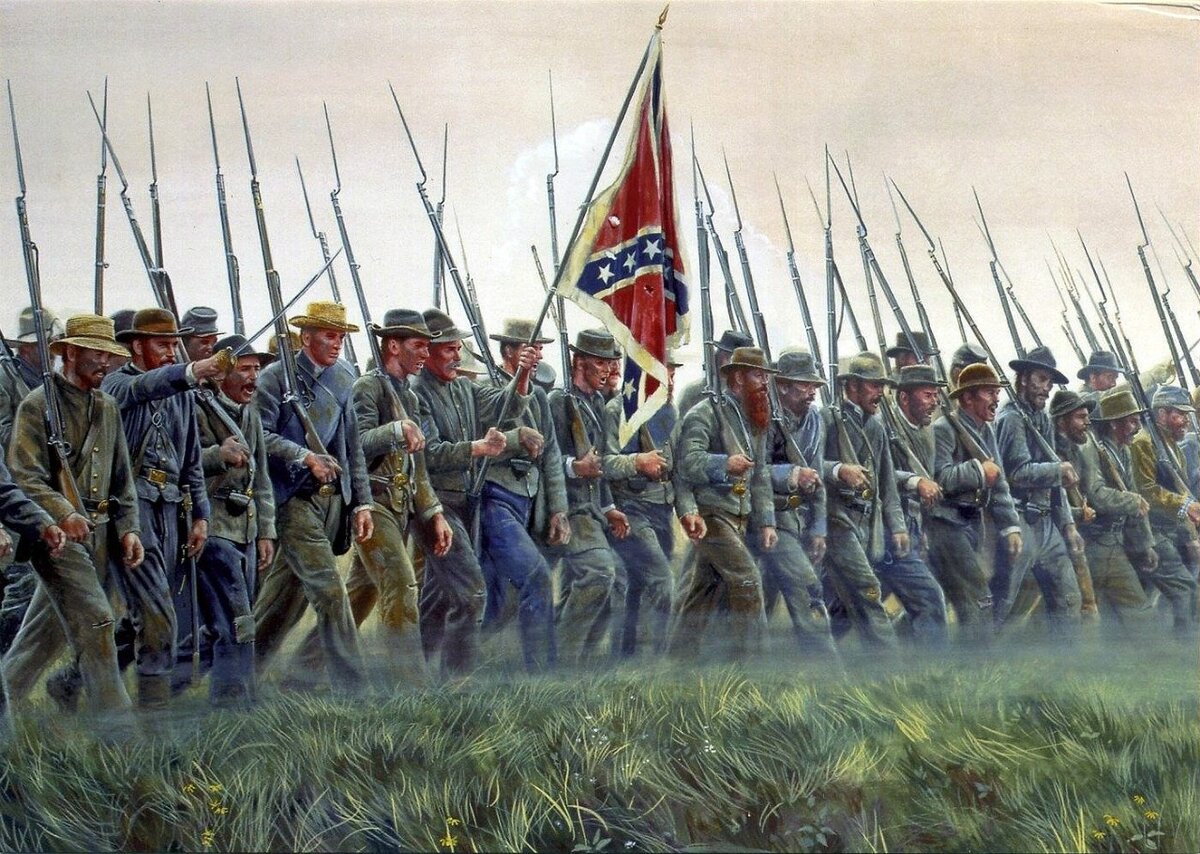In 1861, the United States began the bloodiest war in history. The enemy didn't come from outside, it was a civil war between the Northern and Southern states. What did over 600,000 people die for? What did the Southerners want and what did Lincoln want? What consequences did this war have on the history of the country? About all of this in this article.
Background and causes of the conflict

Every schoolchild in the United States knows that the main (and only) cause of the American Civil War was slavery. And here we immediately encounter the main myth, because this conflict has several causes, some of which are not directly related to slavery.
When the United States was formed in the late 18th century during the war with England, the states entered into a number of treaties, including the Constitution. This was to ensure that the states were a unified mechanism in fighting a common enemy. Soon differences began to emerge between the states in the way they governed and conducted their economies, in the formation of economic institutions, etc.
These problems became especially acute when the U.S. government began to pursue a policy of protectionism in the first half of the 19th century. Industrial goods from England were subject to high taxation, so southerners were forced to buy goods from the northern states.
At the same time, they were forbidden to raise prices on agricultural products. And if we add to this the increase in taxes for the southern states, we get a high level of social tension.
An important problem in the South was slavery. These lands were agrarian, with huge fertile plantations where slaves from Africa had been used since the 17th century. As the American historian de Tocqueville wrote, ‘slavery becomes ruinous to the master.’
For the north, the southern model of running an economy had no prospects. In order for the United States to exist as a unified state with a modern economy, it was necessary to get rid of slavery. This was not so much about humanism as it was about the economy of the country.
The Republican Party, of which Lincoln was the leader, favored the joint integration of the states as well as the abolition of slavery. When Lincoln's victory in the presidential election was announced at the end of 1860, the southern states protested. It was then decided, under the right of withdrawal, to leave the United States and form their own state.
In February 1861, the southern states announced the creation of the Confederacy headed by President Jefferson Davis. This represented 40% of the country's territory. In order to hold the US together, a show of force was necessary. Lincoln began to prepare for war with the south.
It is noteworthy that the events in the USA were followed by the journalist Karl Marx. Already in 1861 he wrote an article in which he noted an important fact for historians even today: it was not the North that started the war, but the South. At the end of the article he makes an important conclusion: ‘slavery - the root of the whole conflict - would be the source of continuous enmity, disagreement and struggle’, so the situation in 1861 was inevitable.
Major events
Over the course of the war, over 2 million soldiers were mobilized into the Army of the North and over 1 million into the Army of the South.
Most famous land battles:
Battle of Shiloh 1862. Northern victory led by General Ulysses Grant.
Battle of Seven Pines. An unsuccessful attempt at a counteroffensive by the South. As a result of the defeat, Robert E. Lee, one of the most famous military men from the slave states, became the new commander of the Southern army.
Battle of Chancellorsville 1863. The first major defeat of the Northern army, the South goes on a major offensive that was halted by the Battle of Gettysburg (1863).
Battle of Atlanta. A series of battles and engagements in 1864, ending in a Northern victory.
Siege of Petersburg. A decisive series of battles from the summer of 1864 to March 1865.
Battles at Sea:
The North's capture of New Orleans in 1862 under David Farragut.
The Battle of Hampton's Raid is the most famous naval battle of the Civil War period. It was the first battle involving battleships.
From April to June 1865, individual Southern units surrendered. In June of that year, the war was officially ended with the victory of the U.S. Army.
The aftermath of the war
Remarkably, Lincoln did not see the surrender of the South. In April 1865, he was mortally wounded by one of the supporters of the South. So, the emergence of political terrorism is one of the consequences of the American Civil War.
In December 1865, the 13th Amendment to the US Constitution was passed. Slavery was banned. Despite this move, the situation for blacks remained dire. Segregation laws were introduced in many states. Even in the second half of the 20th century, blacks would continue to fight for their rights, particularly the right to education. A prime example is the activities of Martin Luther King.
In the second half of the nineteenth century, black people in the United States began not only to vote in elections for the first time, but also to be elected to office.
Some Southern veterans never got over the defeat. Among these was Nathaniel Forrest, who formed the Ku Klux Klan in late 1865. This organization became a symbol of violence and racism in the US. They unleashed terror not only against the black population, but also against Republicans.

















